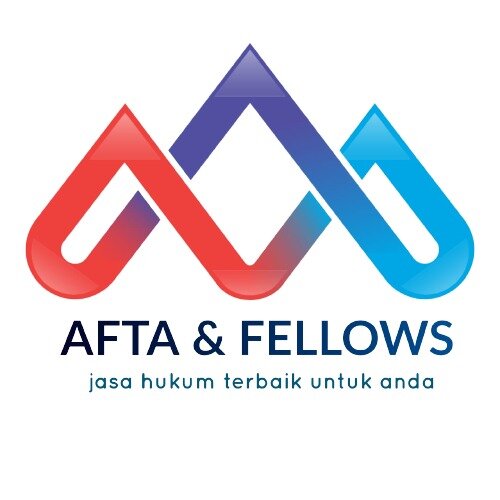Best Disability Lawyers in Yogyakarta
Share your needs with us, get contacted by law firms.
Free. Takes 2 min.
List of the best lawyers in Yogyakarta, Indonesia
About Disability Law in Yogyakarta, Indonesia
Disability law in Yogyakarta, Indonesia, is primarily focused on the rights and protections afforded to individuals with disabilities to promote inclusion and equal opportunity. The Indonesian government, through various laws and regulations, aims to ensure that persons with disabilities can access education, employment, public facilities, and other essential services. In Yogyakarta, as a culturally rich and progressive city, there is an ongoing effort to enhance accessibility and support for individuals with disabilities. Local advocacy groups and governmental bodies work together to improve the lives and rights of these individuals.
Why You May Need a Lawyer
Legal assistance may be necessary in several situations related to disability in Yogyakarta. These can include disputes regarding employment discrimination, issues with accessibility in public or private spaces, or navigating the complex legal requirements for disability benefits. Additionally, individuals may need assistance in advocating for appropriate educational accommodations or dealing with health care services. A lawyer can provide guidance on legal rights and obligations, represent individuals in legal proceedings, and aid in negotiating settlements or agreements with public and private entities.
Local Laws Overview
In Yogyakarta, like the rest of Indonesia, the primary legal framework governing disability is informed by national laws such as the Disability Law (UU No. 8/2016) and the Indonesian Constitution. These laws mandate non-discrimination and equal access to opportunities for persons with disabilities. The key aspects include the right to accessible education and employment, public service accessibility, and the provision of necessary accommodations in various sectors. Yogyakarta also emphasizes community-based rehabilitation and inclusion programs to support people with disabilities effectively.
Frequently Asked Questions
What are the key rights of persons with disabilities in Yogyakarta?
Persons with disabilities have the right to equal access to education, employment, and public services. They are also entitled to receive reasonable accommodations and assistive technologies to support their participation in society.
Are there specific organizations that support the rights of disabled individuals in Yogyakarta?
Yes, there are several local and national organizations, including PPDI (Persatuan Penyandang Disabilitas Indonesia) and organizations involved in advocacy and support for disability rights in Yogyakarta.
What steps can I take if I face disability discrimination in the workplace?
You can file a complaint with your employer's human resources department. If the issue is not resolved, you may seek legal counsel and, if necessary, file a complaint with a legal authority such as the Ministry of Manpower.
How can I ensure that a public space is accessible for persons with disabilities?
Public facilities in Yogyakarta are required to meet accessibility standards set by the government. If a facility is not compliant, you can report it to local authorities or seek advice from disability advocacy groups.
What legal protections are available for students with disabilities?
Students with disabilities are entitled to receive appropriate adjustments and support within educational institutions. This includes physical access and tailored learning resources.
Where can I find legal representatives specializing in disability law?
You can contact the Indonesian Bar Association or local legal aid organizations in Yogyakarta to find lawyers who specialize in disability law.
What are the penalties for non-compliance with disability laws in Yogyakarta?
Non-compliance with disability laws can result in administrative sanctions, fines, and in some cases, legal action against the offending party.
Can tourists with disabilities access facilities in Yogyakarta?
Yogyakarta has been working to improve its accessibility for tourists with disabilities, with increasing numbers of hotels, restaurants, and tourist attractions being equipped to accommodate them.
Is there government assistance available for people with disabilities in Yogyakarta?
Yes, the government provides several forms of support, including disability benefits, vocational training, and rehabilitation services.
How can I advocate for improved disability rights in Yogyakarta?
Engaging with local advocacy groups, participating in awareness campaigns, and providing feedback to local authorities can contribute to advancing disability rights in the region.
Additional Resources
To further support individuals with disabilities, several resources are available. The Ministry of Social Affairs provides information on regulations and available support. Local NGOs such as Yayasan Penyandang Cacat Mandiri offer services and advocacy. The Yogyakarta provincial government also runs initiatives to improve accessibility and inclusion.
Next Steps
If you require legal assistance related to disability issues, it is advisable to consult with a qualified lawyer familiar with Indonesian disability law. Start by searching for legal aid organizations in Yogyakarta or contacting the Indonesian Bar Association for recommendations. Ensure you gather all relevant documents and evidence related to your case to streamline the consultation process. Reach out to local advocacy groups for support and advice as well, as they can offer valuable guidance and resources.
Lawzana helps you find the best lawyers and law firms in Yogyakarta through a curated and pre-screened list of qualified legal professionals. Our platform offers rankings and detailed profiles of attorneys and law firms, allowing you to compare based on practice areas, including Disability, experience, and client feedback.
Each profile includes a description of the firm's areas of practice, client reviews, team members and partners, year of establishment, spoken languages, office locations, contact information, social media presence, and any published articles or resources. Most firms on our platform speak English and are experienced in both local and international legal matters.
Get a quote from top-rated law firms in Yogyakarta, Indonesia — quickly, securely, and without unnecessary hassle.
Disclaimer:
The information provided on this page is for general informational purposes only and does not constitute legal advice. While we strive to ensure the accuracy and relevance of the content, legal information may change over time, and interpretations of the law can vary. You should always consult with a qualified legal professional for advice specific to your situation.
We disclaim all liability for actions taken or not taken based on the content of this page. If you believe any information is incorrect or outdated, please contact us, and we will review and update it where appropriate.









